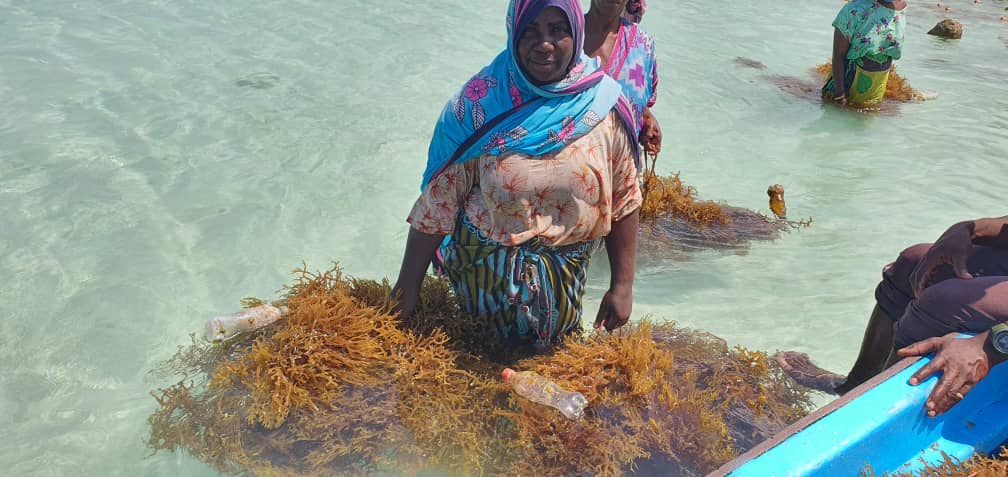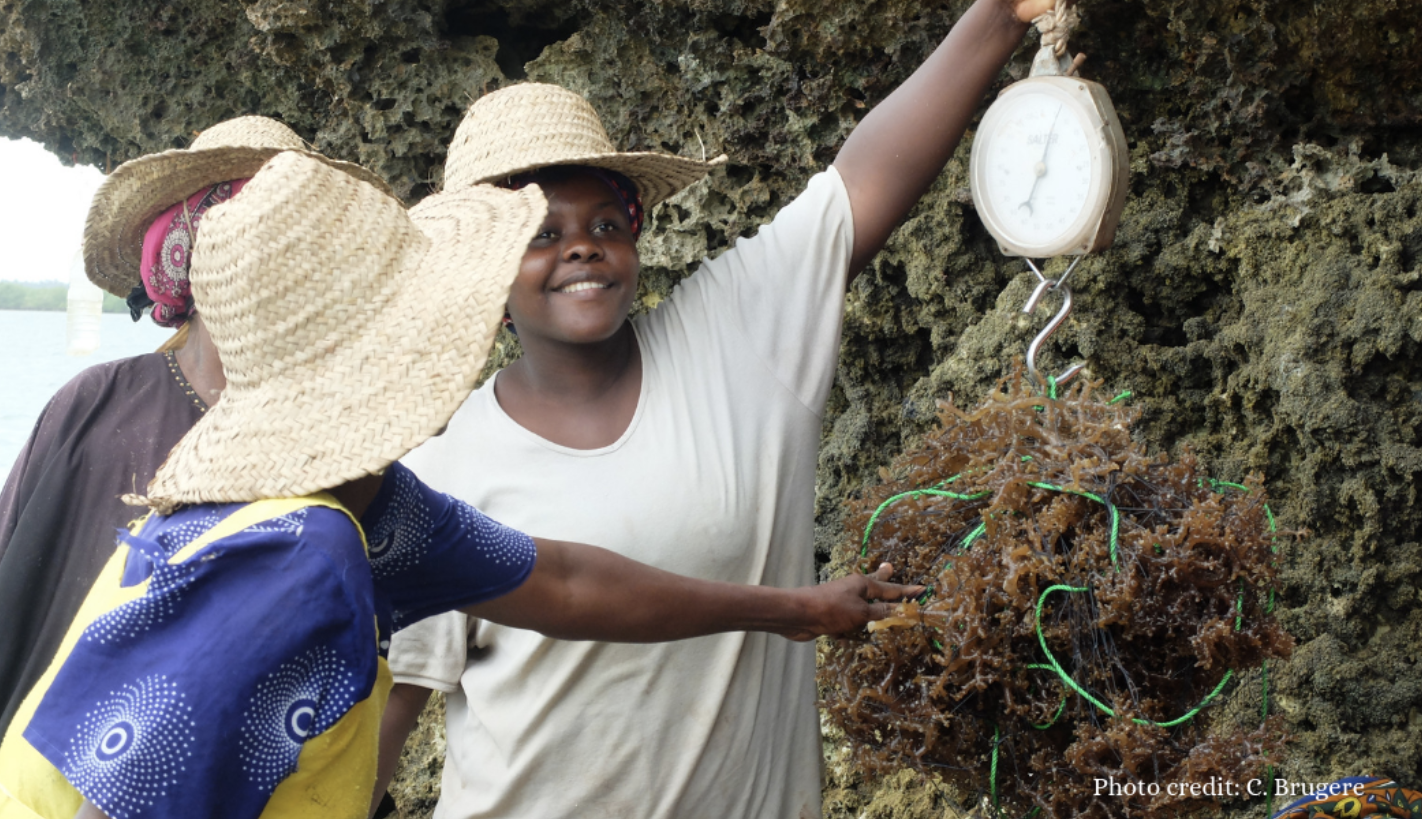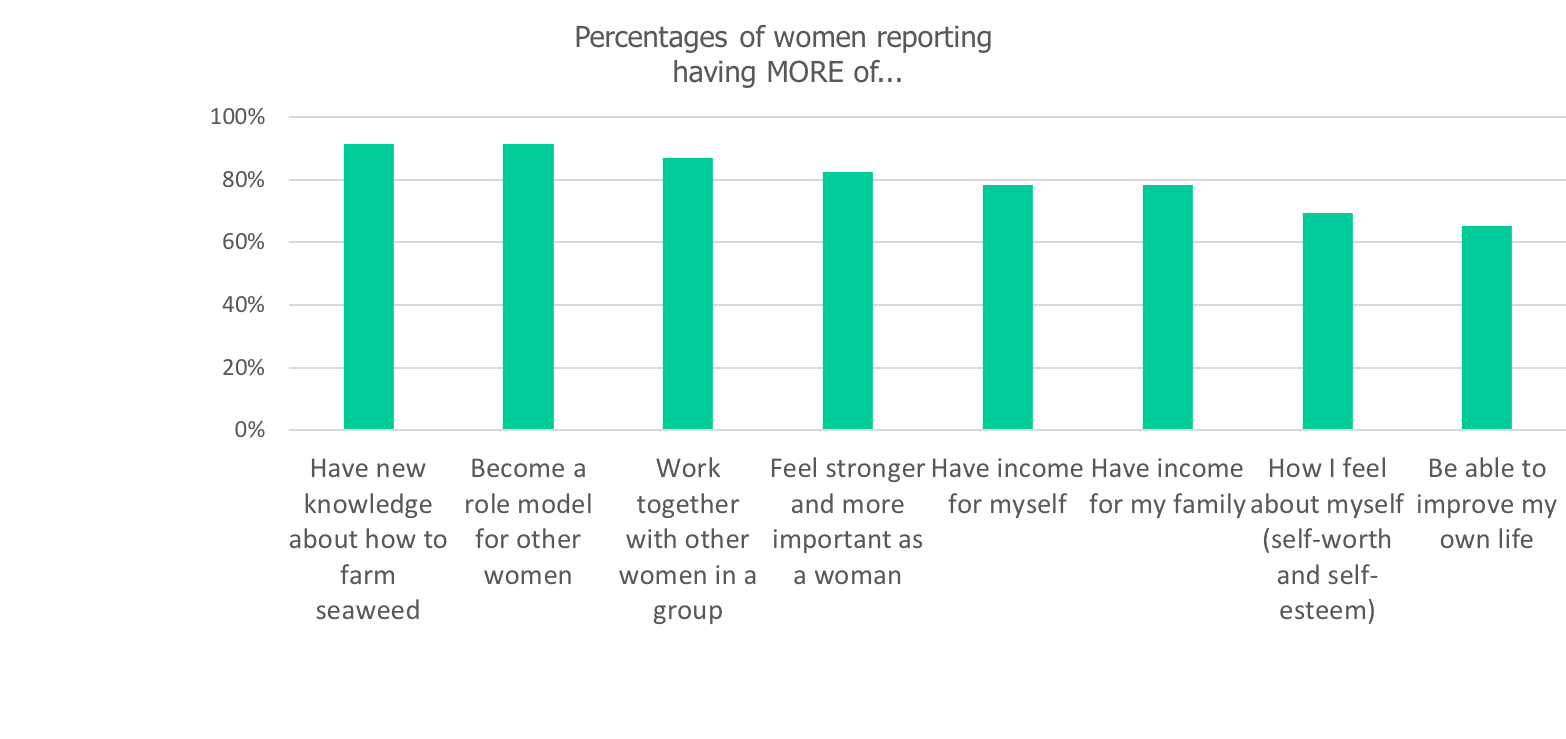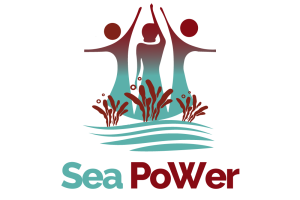Our Story
Sea PoWer started as project in 2017 when it received Australia’s prestigious Department of Foreign Affairs and Trade (DFAT) Blue Economy Challenge Award. Going from strength to strength with the support of SwedBio (Sweden), the Blue Climate Initiative and the Safe Seaweed Coalition, it now works with three groups of women seaweed farmers in the Zanzibar archipelago and is about to expand to other areas.

- Blue Economy Challenge and Swedbio Awards (2016-2019)
- Blue Climate Initiative Community Award (2021-2022)
- Safe Seaweed Coalition Award (2022-2023)
In late 2016, Sea PoWer was selected as one of the ten winners of Australia’s prestigious Department of Foreign Affairs and Trade (DFAT) Blue Economy Challenge Award. The funding enabled us to constitute the first group of women seaweed farmers in the village of Dimani Niamanzi and establish the first tubular net trial with them in 2017. The same year, SwedBio, a knowledge interface at Stockholm Resilience Centre in Sweden, further complemented our funding to create a second group of women producers and second tubular net pilot in the community of Muungoni, while focusing on social issues and women’s empowerment arising from the introduction and use of the tubular nets. Results from the two tubular net trials and involvement of the women showed promise: the seaweed farming innovation enabled to farm and increase the yield of the higher-valued Cottonii seaweed species, improve income, work conditions and resilience to climate-induced environmental variations, and triggered positive changes in women’s self-confidence, social capital and empowerment. Our results have been presented at the WIOMSA International Symposium, Dar es Salam, Tanzania, in November 2017, and at the 7th Gender in Aquaculture and Fisheries (GAF7) Conference, Bangkok, Thailand in October 2018. They have also been published in scientific journals - check our publications page here.
In 2021, Sea PoWer was selected as one of the six winners Blue Climate Initiative’s Community Awards to expand its support to another group of women seaweed producers on Pemba island to use tubular nets to farm seaweed. With this award we implemented peer-to-peer training and replicated our unique approach to technology diffusion. We trained the three groups of women seaweed farmers in seaweed processing skills to increase the value of their production and collaborated with our partner Aqua-Farms Organisation (AFO) and their SusBlue Shop to market their seaweed products.
In early 2022, Sea PoWer received more support from the Safe Seaweed Coalition to enhance the operational and occupational safety of women who farm seaweed in deep-water with the tubular nets (e.g. swimming and safety at sea skills), and to improve their seaweed processing methods for higher quality and value seaweed products for the domestic market.
OUR BREAKTHROUGHS
Sea PoWer had two significant breakthroughs so far. The first was an astounding harvest of 1 tonne of the high-valued cottonii species over a 6-week growth cycle with a newly created group of 12 women farmers in Pemba in October 2021, confirming the relevance of the technology and the impact of peer-to-peer training. The second breakthrough was to officially become an international NGO based in Tanzania at the end of February 2022 – a landmark change in status opening new opportunities for growth, partnerships, recognition and impact.

OUR IMPACT

For Sea PoWer, innovation and women’s empowerment are two sides of the same coin. We are regularly collecting data to monitor the impact of our activities.
The Sea PoWer pilots have demonstrated that seaweed productivity from tubular nets in deeper water is higher than with the traditional off-bottom technique in shallow areas.
With this technology, women’s work conditions have improved: they are suffering from fewer stings and cuts from paddling and sitting in the lagoon sorting tangled ropes, as they are mostly on the boat.
Women have also showed their confidence in using the tubular nets and in working together more closely than they ever were in the past.
Benefits from Sea PoWer’s support extends to the families and communities of the women who are part of the Sea PoWer groups, and to other communities who, over time, will benefit from more resilient livelihoods and coastal ecosystems.
The women Sea PoWer has supported have reported that:
- 91% have better knowledge on how to farm seaweed.
- 91% have become a role model for other women.
- 87% have built their social capital.
- 83% feel stronger and more important as a woman.
- 78% have earned more income for themselves and their families.
- 70% have increased their self-esteem.


